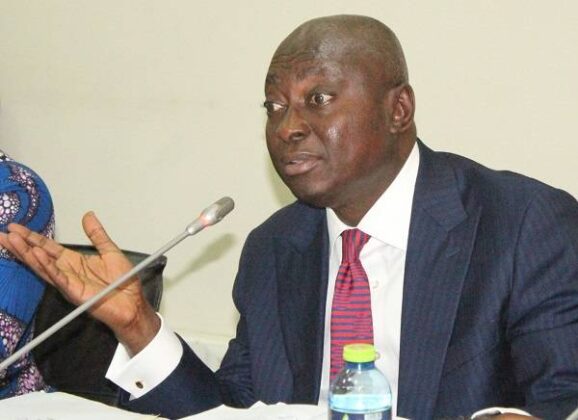IGP Leaked Tape: Committee’s report lacks substance and should Be rejected – Atta Akyea
The report, unsigned by Akyea, accused three senior police officers—COP Alex George Mensah, Supt. George Lysander Asare, and Supt. Emmanuel Eric Gyebi—of misconduct, a major offence under police regulations, recommending they be sanctioned according to police disciplinary procedures.
- Advertisement -
Samuel Atta Akyea, the Chairman of the ad hoc committee investigating a leaked tape regarding a plot to remove the Inspector General of Police (IGP) from office, has criticized the committee’s report, describing it as “anaemic” and lacking substance for any parliamentary action.
The report, unsigned by Akyea, accused three senior police officers—COP Alex George Mensah, Supt. George Lysander Asare, and Supt. Emmanuel Eric Gyebi—of misconduct, a major offence under police regulations, recommending they be sanctioned according to police disciplinary procedures.
- Advertisement -
However, during the parliamentary debate, Akyea urged the house to reject the report, citing its lack of logical foundation. He argued, “I want to submit with the greatest of respect that this report reduced parliament and the good committee of parliament to a conveyor belt that anything they drop on it should go. You do not just listen to people who come before a committee and that will bring you to a conclusion of the matter. You delve into the matters. A committee of parliament is not a conveyor belt. They’re supposed to delve into this matter. And on that showing, this report is so anaemic.”
- Advertisement -
He further stated, “It lacks substance for plenary to find, with the greatest of respect any decision on it and to uphold this report. Yes. And I urge this House to reject this report because there is no foundation of evidence for this report. And we shouldn’t make a resolution based on such an anaemic report.”
- Advertisement -
In response, James Agalga, the Vice Chairman of the ad hoc committee, countered Akyea’s remarks, accusing him of misrepresenting the facts. Agalga stated, “Mr Speaker, quite a number of issues have been raised, which constitutes a gross misrepresentation of the facts and of the report…in the course of the committee’s deliberations, the chairman had the opportunity to raise the arguments that he has canvassed before this house this evening that we could not elevate conspiracy to the level of our criminal jurisprudence under section 23 of the criminal and other offences act and we all agreed as a result of that intervention.”
Agalga clarified that the committee did not use the legal definition of conspiracy from section 23 of the Criminal and Other Offenses Act. “Mr Speaker, if you look at the report, we did not use the definition of conspiracy under section 23 of the Criminal and Other Offenses Act. We borrowed the dictionary meaning of conspiracy and dealt with the matter as such,” he explained.
Source:dailymailgh.com
- Advertisement -


